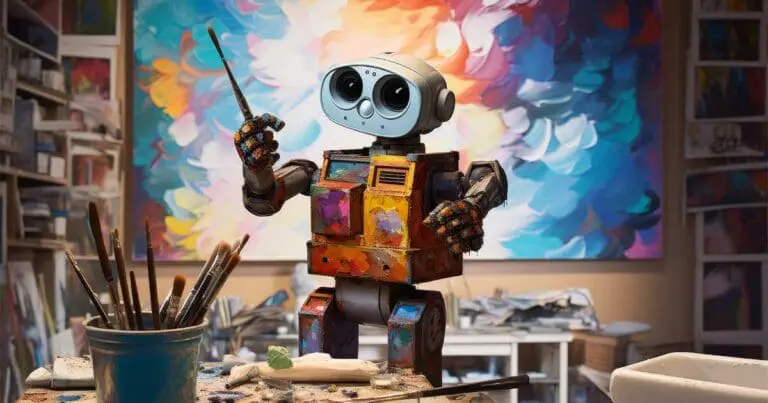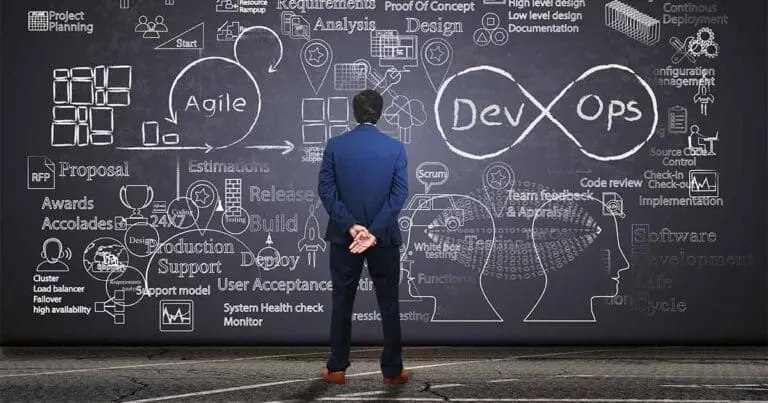Specialized AI Bots and the Evolution Beyond ChatGPT

Artificial intelligence is advancing at an unprecedented pace, and the era of generalized chatbots is quickly evolving into something extraordinary.
The evolution of specialized AI bots and deep learning is pushing the boundaries of what’s possible to new heights.
Innovating past ChatGPT and its conversational interfaces, we are now entering a realm where purpose-driven bots will reign supreme.
The AI bot landscape is shifting, creating a profound need for specialists and subject matter experts to not only build these futuristic bots but also to use and manage them effectively.
Everything you need to know about specialized AI bots and the evolution beyond ChatGPT:
- What are specialized AI bots?
- 10 examples of specialized AI bots with use cases
- The rise of ChatGPT
- The shift to specialized AI bots
- The future of specialized AI
What are specialized AI bots?
Specialized AI bots are designed with specific abilities and functions to perform tasks such as natural language processing, image recognition, and decision-making.
These bots are trained and programmed using advanced algorithms to accurately complete their designated tasks without human intervention.
10 examples of specialized AI bots with use cases
Narrow, specialized AI is designed with a specific purpose or subject expertise and are tailor-made to excel within their designated domains.
They are capable of processing advanced, domain-specific tasks that require specialized knowledge, offering a level of precision and efficiency unmatched by their generalized counterparts.
- Healthcare AI: IBM Watson Health
- Finance AI: Kensho
- Retail AI: Stitch Fix Algorithm
- Agriculture AI: Blue River Technology
- Manufacturing AI: Siemens MindSphere
- Legal AI: ROSS Intelligence
- Transportation AI: Waymo
- Customer Service AI: Amelia by IPsoft
- Energy AI: DeepMind
- Education AI: Century Tech
1. Healthcare AI: IBM Watson Health
IBM Watson Health, a specialized AI bot in healthcare and ChatGPT alternative, leverages artificial intelligence to analyze extensive volumes of medical data, encompassing patient records, medical research, and more.
This enables healthcare providers to make more informed decisions, customize patient care, and identify potential treatment options, particularly in complex cases such as cancer treatment, demonstrating the transformative potential of AI in the healthcare industry.
2. Finance AI: Kensho
Kensho, a specialized AI bot in finance, employs sophisticated artificial intelligence algorithms to deliver comprehensive market research, analytics, and trading insights, thereby revolutionizing the financial industry.
Its ability to process natural language queries offers real-time responses to complex financial questions, facilitating smarter investment decisions and in-depth market analysis.
3. Retail AI: Stitch Fix Algorithm
Stitch Fix, a company operating in the retail industry, utilizes a specialized AI algorithm for personalized fashion curation and product recommendations.
AI-powered bots analyzes customer queries, preferences, sizes, and feedback to recommend suitable clothing items, significantly enhancing the shopping experience and customer satisfaction.
4. Agriculture AI: Blue River Technology
Blue River Technology, a pioneer in agricultural AI, has reshaped farming with its innovative machinery that employs artificial intelligence for precise and efficient crop care.
Their groundbreaking systems can identify and spray individual weeds, drastically reducing herbicide usage and championing sustainable farming practices.
5. Manufacturing AI: Siemens MindSphere
MindSphere, a specialized AI bot employed in the manufacturing industry, utilizes artificial intelligence for predictive maintenance and process optimization.
By analyzing data from IoT devices, MindSphere can predict equipment failures before they occur, thus significantly reducing downtime and maintenance costs.
6. Legal AI: ROSS Intelligence
ROSS Intelligence, a specialized AI bot in the legal industry, harnesses the power of artificial intelligence to expedite legal research by swiftly navigating through a plethora of legal documents and case law.
This innovative application of AI enhances efficiency in legal practices by identifying pertinent information, thus considerably reducing the time and effort spent on research.
7. Transportation AI: Waymo
Waymo, a subsidiary of Alphabet, deploys specialized AI in the transportation industry with its innovative autonomous driving technology.
By processing data from sensors and cameras, Waymo’s AI navigates roads safely, aspiring to revolutionize personal and commercial transportation through its cutting-edge AI applications.
8. Customer Service AI: Amelia by IPsoft
Amelia, developed by IPsoft, is a specialized AI bot used in the customer service industry, designed to interact with customers in a natural, conversational manner.
Its application spans various industries from banking to healthcare, offering quick, efficient, and personalized customer interactions, revolutionizing customer service delivery with an intelligent, empathetic, and ever-learning digital assistant.
9. Energy AI: DeepMind
Google’s DeepMind showcases the power of specialized AI in the energy sector by optimizing energy consumption in data centers.
Its advanced AI algorithms predict cooling needs and streamline energy usage, resulting in substantial reductions in both energy costs and carbon footprint.
10. Education AI: Century Tech
Century Tech, a leader in education technology, utilizes specialized AI to deliver personalized learning experiences to students.
It employs artificial intelligence to analyze individual learning patterns, adapting educational content creation and image generation to suit specific student needs, thereby enhancing engagement and improving learning outcomes.
The rise of ChatGPT AI bot
The era of Chat GPT AI bot can be summed up in a few main points such as:
The rise of natural language processing (NLP)
The rise of natural language processing (NLP) has been instrumental in developing and growing conversational AI technology.
It represents a significant leap forward in enabling machines to understand and respond to human language more naturally and intuitively.
The advancement of NLP technologies equips AI with the ability to understand context and grasp nuances in language, thereby enhancing the interaction between humans and machines.
Pre-trained chatbot models
The development of pre-trained chatbot language models, such as ChatGPT and Jasper Chat, has revolutionized the field of conversational AI.
These models are pre-trained on vast amounts of text data and user input, enabling them to generate human-like text that is contextually accurate and coherent.
The ability of these user interfaces to understand and generate complex empathetic responses has elevated the conversational capabilities of AI bots, paving the way for more sophisticated and personalized user interactions.
Widespread adoption of AI bots
The widespread adoption of AI chatbot solutions across various industries has significantly transformed customer service, sales, and marketing strategies.
These intelligent bots have been instrumental in automating customer experiences, thereby enhancing efficiency and customer satisfaction.
Moreover, in the sales and marketing arenas, AI bots have opened up new avenues for personalized customer engagement and predictive analytics, revolutionizing traditional practices.
ChatGPT impact on business
2023 marked a significant milestone for ChatGPT, with its impact notably transformative across various business landscapes.
It facilitated intelligent conversations, convincingly mimicking human dialogue, and demonstrated the potential of AI in creating sophisticated, contextually coherent interactions.
However, despite their strengths, generalized AI bots like ChatGPT faced limitations in specific applications, primarily due to their lack of specialized knowledge and inability to adapt to complex, domain-specific tasks or queries.
The shift to specialized AI bots
The shift to specialized AI bots can be tied to several factors including the impact of open-source AI, Meta’s AI bot diversification, and adding personality in AI bots.
Impact of open-source AI
The open-source AI movement has been a significant driver in the development of a wide range of specialized AI bots.
Far exceeding a simple Google search, open-source AI provides a platform for sharing and collaboration, enabling developers worldwide to contribute to and learn from leading-edge AI technologies.
Companies tap into these open-source models, leveraging them to design efficient and effective AI solutions, accelerating the development and availability of specialized AI applications.
Meta AI bot diversification
Meta’s approach, deploying a suite of 28 different special-purpose bots, exemplifies the transition from generalized to specialized AI bots.
Each bot is tailored for a distinct task, demonstrating the increasing demand for AI solutions that can provide expert, nuanced responses within specific domains.
This diversification reflects a significant shift in AI development strategies, focusing on creating bots that are not just conversational but also capable of understanding and operating effectively within complex, specialized fields.
Adding personality in AI bots
Infusion of distinct personalities into AI bots, exemplified by AI interactive assistants like Coco, Max, and Victor, significantly enhances user experience by fostering a more human-like interaction.
This personalization enables each bot to resonate differently with users, creating an engaging and unique experience.
Furthermore, the specialized knowledge base these bots possess provides targeted, specific responses, completing advanced tasks that outperform generalized bots like ChatGPT, Alexa, and Siri in niche areas.
While these generalized bots provide broad usability and versatility, they may lack the depth and nuance in responses a specialized and personality-driven AI bot could offer, affirming the importance of specialization and personality in the next generation of AI bots.
The future of specialized AI
The shift from generalized to specialized AI bots marks a significant milestone in artificial intelligence, deep learning, and natural language processing, enabling more content-specific, efficient, and accurate responses within various industries.
As we propel forward, the trajectory of AI development promises continued advancement, with a potential paradigm shift towards more autonomous and intelligent systems, profoundly impacting society and the way we interact with technology.
As the landscape of AI continues to evolve, it is essential to stay informed and engaged with the latest trends, ethical concerns, and developments.
Looking to hire top-tier Tech, Digital Marketing, or Creative Talent? We can help.
Every year, Mondo helps to fill over 2,000 open positions nationwide.
More articles about hiring and industry trends:
- 24 Top In-Demand Tech and IT Jobs to Hire in 2024, with Salaries
- Fractional Executives & C-Suite Gig Work Shaping the Employment Landscape
- Harnessing the Power of Climate Tech to Drive Environmental Sustainability
- Staffing Strategies For Each Phase of the Business Cycle
- How to Leverage Tech and Digital Marketing for Back-of-House Hospitality
- Key Roles to Get the Most Out of Your MarTech Stack
- Tapping the Gig Economy: When It Makes Sense to Hire Contractors
- How Executive Recruiters Ease Your Hiring Process
- What to Do When You Have Urgent Hiring Needs
- Generative AI & Its Impact on the Job Market: It’s Not All Bad News
- The Rise of Working Moms & the Role of Remote Work
- How to Recruit Top Data Scientists in a Competitive Job Market
- Lessons From Unicorn Companies: Hiring Strategies for Rapid Growth



